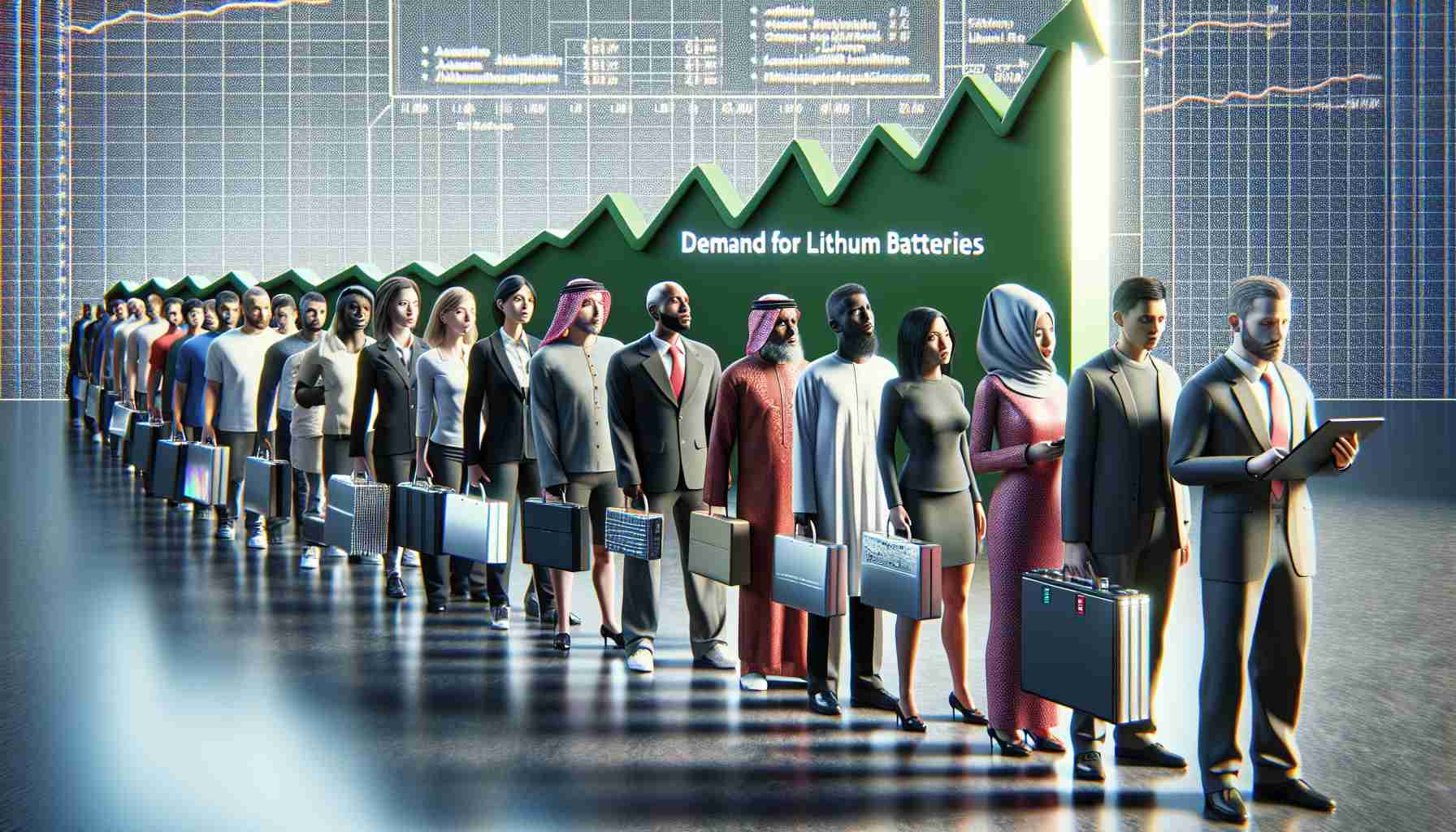The demand for lithium-ion batteries in energy storage systems and electric vehicles is projected to skyrocket in the coming decade, creating a quandary for Western countries reliant on China for their supply chain. According to industry expert Stephen Hayward, the expected sixfold increase in demand for lithium-ion batteries by 2030 necessitates a focus on recycling to ensure Western countries can secure the critical materials required.
In an increasingly uncertain geopolitical environment, wherein countries like Russia’s invasion of Ukraine have disrupted energy supplies, it becomes imperative for Western governments, without abundant lithium reserves, to reduce dependency on external regions for their supply chains. This challenge is compounded by China’s dominance in the battery sector, controlling two-thirds of the world’s lithium processing capacity despite holding a smaller percentage of lithium reserves.
To address this issue, Western countries must embrace the concept of a circular economy in the battery industry. The notion entails recycling lithium at the end of a battery’s lifespan, allowing for reuse within the region. By the end of this decade, the world is set to accumulate over 11 million tonnes of used lithium-ion batteries, commonly referred to as “black mass.”
Currently, these batteries are often shipped back to Asia for recycling due to limited recycling capacity in Western countries. However, this process raises questions about environmental sustainability, as the transportation of these materials across vast distances can significantly impact carbon emissions.
Bridging this gap, companies like Green Li-ion are developing innovative technologies to recycle 100% of the black mass into battery-grade material. Instead of operating their recycling plants, Green Li-ion licenses its technology to companies, enabling them to recycle batteries in-house. However, the key challenge lies not in competition between companies but in establishing a robust network of recyclers capable of handling the massive influx of black mass and keeping the recycling process within the local region.
As the demand for lithium-ion batteries continues to surge, Western countries must intensify their efforts to establish efficient recycling infrastructures and develop a self-sustainable supply chain. By doing so, they can mitigate the risk of being reliant on other regions and reduce the environmental impact associated with recycling operations.
FAQ Section:
Q: What is the projected increase in demand for lithium-ion batteries by 2030?
A: The expected increase in demand for lithium-ion batteries by 2030 is sixfold.
Q: Why is it important for Western countries to focus on recycling lithium-ion batteries?
A: Western countries, reliant on China for their supply chain, need to focus on recycling to ensure they can secure the critical materials required for lithium-ion batteries.
Q: Why is reducing dependency on external regions important for Western countries?
A: Reducing dependency on external regions is important due to geopolitical uncertainties and disruptions in energy supplies from countries like Russia.
Q: Why is China’s dominance in the battery sector a challenge for Western countries?
A: China controls two-thirds of the world’s lithium processing capacity despite having a smaller percentage of lithium reserves, making it difficult for Western countries to secure their supply chains.
Q: What is the concept of a circular economy in the battery industry?
A: The concept of a circular economy in the battery industry involves recycling lithium at the end of a battery’s lifespan to enable reuse within the region.
Q: What is “black mass” in relation to lithium-ion batteries?
A: “Black mass” refers to used lithium-ion batteries that accumulate as waste and need to be recycled.
Q: Why are lithium-ion batteries often shipped back to Asia for recycling?
A: Limited recycling capacity in Western countries leads to the shipping of lithium-ion batteries back to Asia for recycling.
Q: Why is the transportation of used lithium-ion batteries for recycling concerning?
A: The transportation of these materials across vast distances can significantly impact carbon emissions and raise questions about environmental sustainability.
Q: What is Green Li-ion’s role in recycling lithium-ion batteries?
A: Green Li-ion is a company that licenses its technology to enable companies to recycle 100% of the black mass into battery-grade material.
Q: What is the key challenge for establishing a robust recycling network?
A: The key challenge lies in establishing a robust network of recyclers capable of handling the massive influx of black mass and keeping the recycling process within the local region.
Definitions of Key Terms:
– Lithium-ion batteries: Batteries that use a lithium compound as the cathode material, known for their high energy density and long cycle life.
– Supply chain: The sequence of processes involved in the production and distribution of goods, from raw material acquisition to the final delivery to the customer.
– Circular economy: An economic system aimed at minimizing waste and keeping resources in use for as long as possible through recycling and reuse.
Suggested Related Links:
– Green Li-ion: Official website of Green Li-ion, a company developing innovative recycling technologies for lithium-ion batteries.
– Battery Recycling: Information from the U.S. Environmental Protection Agency about battery recycling and its environmental benefits.
– The 11 Million Tons of Lithium Battery Waste: A Time Bomb?: An article discussing the growing issue of lithium battery waste and the need for efficient recycling solutions.
The source of the article is from the blog crasel.tk
